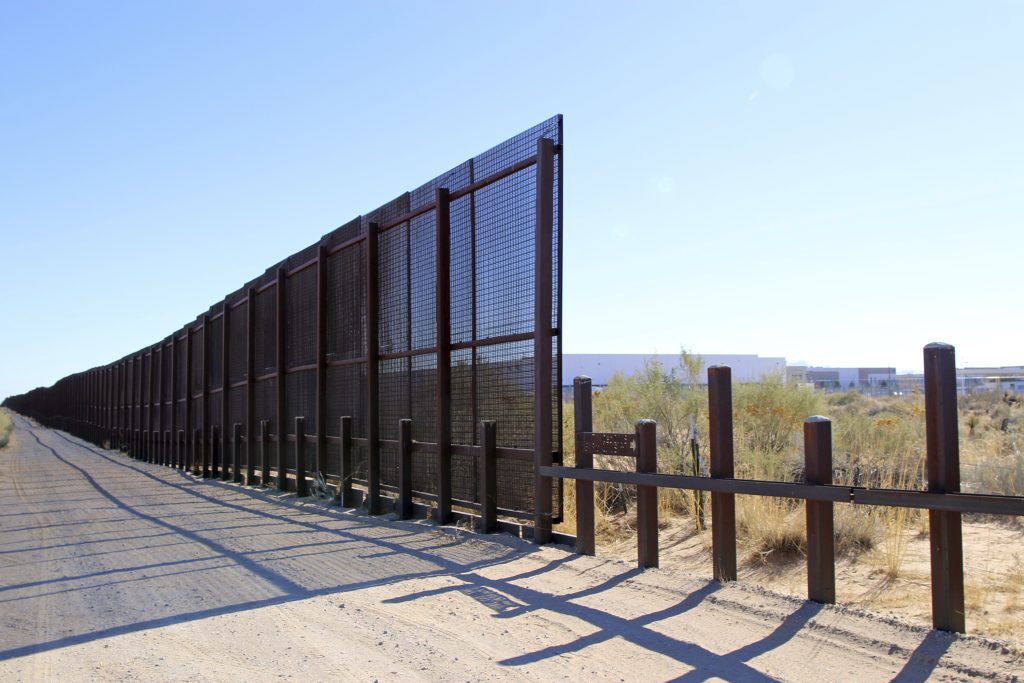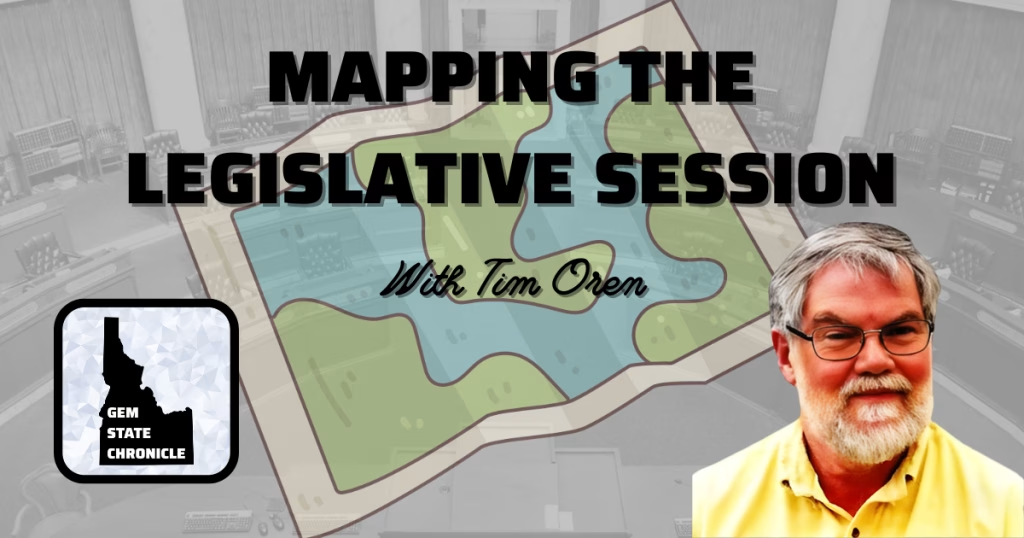Immigration is the defining issue of our time. The United States is currently facing the consequences of a corrupt bargain between Big Labor Republicans who want cheap labor and progressive Democrats who want reliable voters—a deal that has resulted in a massive influx of foreign migrants over the past few decades. This crisis isn’t just about illegal aliens; it includes students and guest workers overstaying their visas, migrants claiming dubious refugee status, and entire populations granted legal status at the stroke of a pen.
I was proud to carry a resolution to the Idaho GOP Summer Meeting in Pocatello last month calling for stronger enforcement of immigration laws here in Idaho. Though a provision requiring employers to use the federal E-Verify system was stripped from the final text, the resolution remains a clarion call to our Legislature.
With the adoption of Resolution 2025-44, the Idaho Republican Party formally expressed concern about the negative impacts of illegal immigration on state resources, public services, and the rule of law. The party therefore:
- Urges all state and local law enforcement agencies to enter into 287(g) agreements with Immigration and Customs Enforcement (ICE)
- Asks for legislation requiring annual reports showing the number of illegal aliens incarcerated in jails and prisons, as well as the number of public school students without legal status
- Condemns employers who knowingly hire illegal aliens and supports penalties under state and federal law
- Opposes any effort to provide legal status, work permits, or driver’s licenses to illegal aliens
- Urges lawmakers to resist pressure from special interests seeking to weaken immigration enforcement
Each of these proposals was drafted as a bill for the 2025 legislative session, but none passed committee. Former Trump advisor Theo Wold helped draft many of these provisions, and Rep. Dale Hawkins was prepared to carry them to the House floor. Unfortunately, only one received a committee hearing: House Bill 335, which would have penalized organizations that facilitate illegal immigration or harbor illegal aliens. Representatives from both Catholic Charities and the Ada County Sheriff’s Office testified against the bill.
House Bill 382, which would have required reports on the number of public school students lacking legal status, was filed with the House Education Committee but never received a hearing. Hawkins also filed House Bills 473 and 474—requiring 287(g) agreements with ICE and reporting of incarcerated illegal aliens, respectively—as personal bills at the end of the session.
That said, the Legislature did take some action. Rep. Jaron Crane sponsored House Bill 83, which made illegal entry into Idaho a state crime. The bill gives law enforcement more authority to detain and deport known illegal aliens involved in the criminal justice system. Gov. Brad Little celebrated the passage of HB 83 and announced that he would use emergency funds appropriated by the Legislature to assist ICE with deporting criminal aliens.
Yet special interests continue to fight meaningful enforcement efforts in Idaho. Lobbyists for the agricultural industry oppose ICE raids on farms and dairies and are pushing for the federal government to expand H-2A visas to year-round work and to grant legal status to undocumented workers already here. It’s worth remembering that a lobbyist for the Idaho Dairymen’s Association recently speculated that 70% of their workers may be here illegally:
I understand that agricultural employers are often placed in a difficult position, since questioning an applicant’s documentation can invite civil rights lawsuits. That’s one reason I continue to support E-Verify: it shifts the liability onto the federal government.
I also sympathize with farmers and dairymen who operate on thin margins and feel that disrupting the status quo would be dangerous. Still, I stand by my position: the current system not only distorts the agricultural market, but also acts as a magnet for foreign labor—legal and illegal—which in turn affects housing, healthcare, education, and more.
Of course, I sympathize with foreign nationals who seek a better life. But the American government exists to promote the welfare of American citizens, not to serve as a global safety valve or jobs program. If someone wants to immigrate legally, assimilate into our culture, and contribute to our society, that’s one thing. But coming here to work and then sending money to foreign countries—especially while violating our laws—is something else entirely.
It’s time to enforce the law. It’s time for Big Ag to break its addiction to cheap foreign labor. Lamentations from industry lobbyists about no one left to pick crops or milk cows echo the arguments of antebellum plantation owners worried about life without slavery. Hiring Americans will be worth it, even if it means paying a little more for a sack of potatoes.
Right now, the Trump Administration is sending mixed signals, as different interests compete for influence. Some days, ICE appears poised to crack down on illegal labor in agriculture. Other days, it seems the administration is content to let Big Ag continue its current practices, or even find some way to grant amnesty to illegal alien workers.
Sen. Brian Lenney recently outlined several ways states like Idaho can fight illegal immigration:
Support Federal Enforcement Efforts:
States can cooperate with ICE by sharing information on suspected overstays during law enforcement activities, supporting federal efforts to identify and detain unauthorized immigrants.287(g) Program:
States and localities can partner with ICE through 287(g) agreements to train and authorize state/local officers to identify, detain, and process unauthorized immigrants, including overstays, during routine law enforcement activities, enhancing enforcement within their jurisdiction.Implement State-Level Identification Policies:
States can restrict driver’s licenses and IDs to those with lawful status, discouraging overstays by limiting access to benefits requiring identification.Enhance Local Data Sharing:
States can share data from state agencies like DMVs with federal authorities to help track overstays, improving enforcement through coordinated information exchange.Public Awareness and Community Engagement:
States can promote campaigns to educate nonimmigrants about visa compliance, reducing overstays by informing communities of legal requirements.Regulate Employment to Deter Overstays:
States can mandate E-Verify and penalize employers hiring unauthorized workers, reducing economic incentives for overstays to remain.Limit Access to State Benefits and Services:
States can restrict non-emergency benefits like in-state tuition to those with legal status, potentially deterring overstays from staying long-term
Borders matter. Culture matters. Following the law matters. Citizenship matters. It’s time for Idaho to lead the way and reinvest in America and in the American people.
Gem State Chronicle is a reader-supported publication. To receive new posts and support my work, consider becoming a free or paid subscriber.
About Brian Almon
Brian Almon is the Editor of the Gem State Chronicle. He also serves as Chairman of the District 14 Republican Party and is a trustee of the Eagle Public Library Board. He lives with his wife and five children in Eagle.













